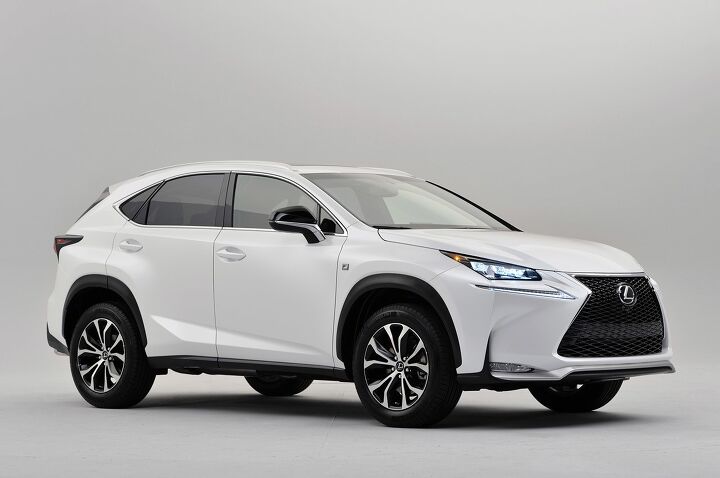QOTD: Why There Will Be No "Made In China" Lexus Products
Currently, there is only one Lexus plant outside of Japan. A Toyota factory in Cambridge, Ontario makes the Lexus RX crossover, while Toyota’s Georgetown, Kentucky plant will come online in 2015. Like other Japanese auto makers, Toyota is moving towards a localization of its production facilities, but one thing they won’t be doing is producing Lexus vehicles in China.
“We are often asked whether we plan to manufacture Lexus cars in China. But the question is whether our brand has earned the trust of customers. If a brand is really trusted, it can sell its products wherever they are manufactured. But Lexus has not yet achieved such a status.”
Building an automotive luxury brand is a decades long process. Audi is an overnight success nearly 40 years in the making, while Infiniti is now on the slow, long road to lifting themselves up out of the doldrums of Tier 2 luxury. Lexus has arguably been the most successful Japanese effort at a Tier 1 luxury brand, but they still have work to do. In world markets (specifically Western Europe), Lexus does not enjoy the same footing as it does in the United States, and has only been on sale in Japan since 2005.
In Fukuichi’s estimation, Audi, BMW and Mercedes-Benz (not to mention, Cadillac and Infiniti) can all do what Lexus cannot: build cars in China without harming brand perception. This is a big problem for Lexus – it must import its cars from Japan (and the NAFTA zone) and sell them at a higher price thanks to import tariffs and other duties. But it’s also a deliberate calculation on the part of Lexus.
If any of the German brands suffered quality problems from Chinese made cars, their customers would likely forgive them, due to the burning desire to have four rings, a three pointed star or two blue triangles on the hood of their car. But nobody feels the same pull for the stylized “L”.
More by Derek Kreindler
Latest Car Reviews
Read moreLatest Product Reviews
Read moreRecent Comments
- Jalop1991 is this anything like a cheap high end German car?
- HotRod Not me personally, but yes - lower prices will dramatically increase the EV's appeal.
- Slavuta "the price isn’t terrible by current EV standards, starting at $47,200"Not terrible for a new Toyota model. But for a Vietnamese no-name, this is terrible.
- Slavuta This is catch22 for me. I would take RAV4 for the powertrain alone. And I wouldn't take it for the same thing. Engines have history of issues and transmission shifts like glass. So, the advantage over hard-working 1.5 is lost.My answer is simple - CX5. This is Japan built, excellent car which has only one shortage - the trunk space.
- Slavuta "Toyota engineers have told us that they intentionally build their powertrains with longevity in mind"Engine is exactly the area where Toyota 4cyl engines had big issues even recently. There was no longevity of any kind. They didn't break, they just consumed so much oil that it was like fueling gasoline and feeding oil every time


































Comments
Join the conversation
I think Toyota got this one right - Lexus is not an aspirational brand but a deliberate choice of the many who want to buy the ultimate Toyota that's built to last. Assembling in Japan is part of that. On the other hand Germans are mostly leased as status symbols, ultimate driving machines, you name it and are supposed to last through the warranty alright - prepaid maintenance and all... Place of assembly doesn't really matter. Heck, they have been assembling MBs and BMWs in South Africa for a while now and most of their US lessees are not even aware of it, let alone mind it. Try to imagine what a 'Made in Africa' Lexus would do to a brand reputation. PS. On a serious note objectively there is nothing wrong with S. African assembly per se other than the subjective perception.
The whole economic "wonder" known as China will cave in on itself as soon as the workers get tired of being paid nothing and everyone gets sick of coughing up black phlegm. 5 years? Maybe 10 at most?